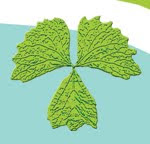Homeopathic medicine, based on the work of the German physician and chemist Samuel Hahnemann over 200 years ago, aims to stimulate the individual's innate healing processes through the administration of minute homeopathic dilutions of specific remedies. Derived from the Greek homeo, meaning same, and pathos, meaning suffering, homeopathy treats 'like with like'. The patient describes his or her symptoms in detail, with equal emphasis placed on both physical and psychological symptoms. Small, nontoxic, doses of a selected substance that, at higher doses, would produce the same symptoms in a healthy person, are then prescribed.
Homeopathy is considered to be holistic in that it looks at a person's unique expression of symptoms. It is rare people present the same set of symptoms even with the same disease or illness. For instance, some children, when they get a fever, may feel lethargic, want to lay down in bed, and may not be thirsty. Others remain energetic, have fevers that come and go, are extremely thirsty, and sweat a lot. Chances are we would not treat these two cases with the same homeopathic remedies. We would find the remedy best suited for a person's individual symptom picture. Homeopathy is also seen to be holistic in that it looks at physical and psychological symptoms. A person's mental/emotional state can be a very important clue in treating both acute and chronic illnesses and again is considered an important expression of an individual.
How does homeopathy differ from naturopathic medicine?
Some naturopaths practice homeopathy. Homeopaths are different in that they have had 4-5 years of training specifically related to the science of homeopathy. Most homeopaths do not use herbal medicine or other products. Homeopathic remedies are prepared from natural substances prepared in a very specific way at homeopathic pharmacies. We are similar in that we both aim to treat the whole person in a manner that is gentle and safe and that helps a person's own body to heal itself.For more information, please see go to: www.helios.co.uk
Why is homeopathy often discredited in the media?
Homeopathy has always been controversial as are many alternative medical treatments. Some point to the fact that there have not been enough clinical trials that validate its effectiveness. Others disagree with the method of preparation of remedies which is seen to be non-scientific. After seeing the results of homeopathy first-hand for over 12 years I am convinced of the positive benefits that homeopathy can offer people. In some cases it can do even more than that, it can turn people's lives around where previously they had felt there was no other help available.


